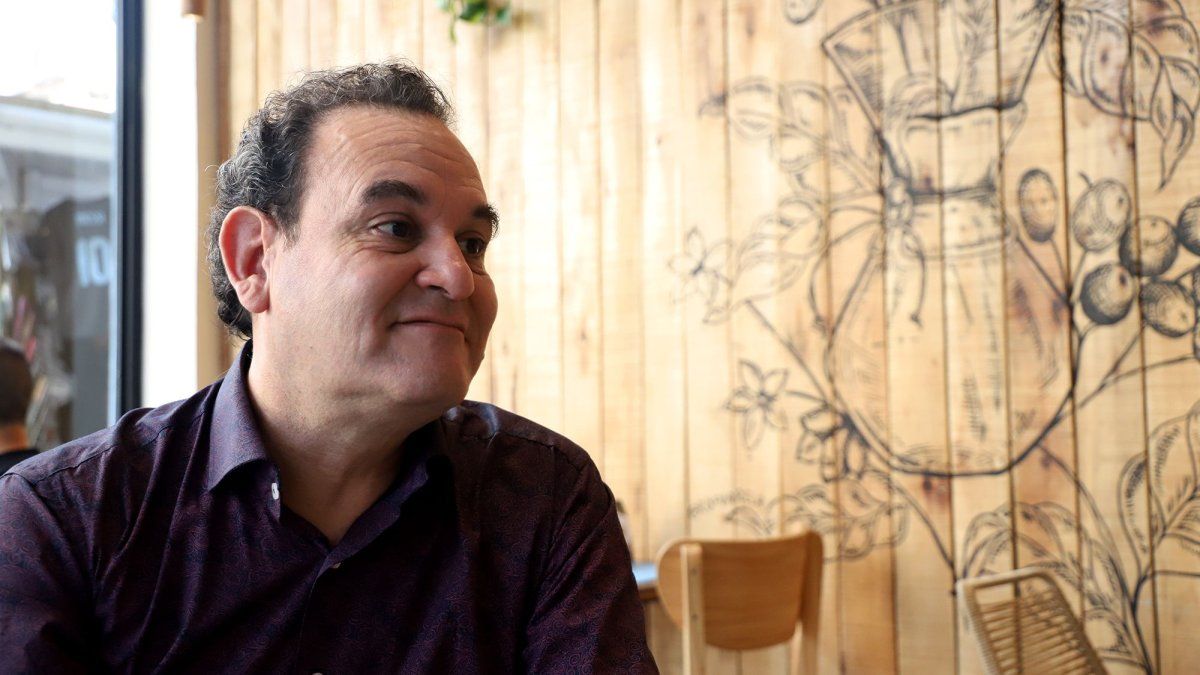“I wanted to bring up a distant problem that originated in Russia but that undoubtedly finds points of contact with our country and our current situation,” says the producer and director Pablo Cernadas, who is premiering next year “Finist, the resplendent falcon”, a Russian work that received awards in its country and whose authorSvetlana Petriychuk, and director, Zhenya Berkovich, They were arrested for being considered terrorists. In the context of a repression of unprecedented levels since Moscow sent troops to Ukraine, these women were held in prison last July awaiting a hearing that ruled against them.
Also next year, Cernadas will launch “Irons”, which received an honorable mention from ARTEI. Written by Alfredo Meña, It is about the disappearance of the musician, Silvio Mario Valderrama, in the late 70s, and currently they rehearse it together with Eduardo Lamoglia to premiere it at El Tinglado. We spoke with Cernadas.
Journalist: How did you come to work in Russia?
Pablo Cernadas: I accidentally read a newspaper article about the arrest of a Russian director and a playwright for a play they had presented. I investigated and found the playwright’s husband and he gave me the rights to the play for Latin America, which has already been translated into Spanish. For that play, both won two very important prizes in that country last year and shortly after they were imprisoned. They were subjected to a ridiculous trial. One of them had demonstrated against the war, apparently that was the reason.
Q: What is the play for which they were imprisoned and which you are going to direct about?
PC: It is about young Russian girls who are recruited by ISIS in a strange way. There are between 2,000 and 3,000 girls a year, who disappear from their families and are absorbed by jihadism, making them fall in love. There is no political or ideological question, they are presented to them in a virtual way as ideal men and while they make them fall in love through chats and Telegram, they start to operate on them and convert them to ISIS. They send them tickets and they travel in an idealistic way. They dream of meeting an ideal man and arrive in Syria via Istanbul. Almost all of them are taken prisoner by the Kurdish army, which sends them back to Russia, where they are imprisoned for dissidents. All this is based on real cases.
Q: What does the title, “Finist, the shining falcon,” refer to?
PC: It is based on a Russian legend that tells of a father and the gifts he gives to his three daughters. He gives one a dress, another a necklace, and the third a feather he finds. The other sisters scoff at the supposedly insignificant gift, but at night, that feather turns into a falcon and a man who makes her fall in love with him. She talks to this ideal man, the sisters spy on her and tell the father. So they put knives in a window and when they burst in, the man gets scared, turns into a bird and escapes, wounded. He tells his girlfriend to look for him in the world that he will wait for her and she puts on her metal dress and goes out to look for him. She travels the world until she finds him in a faraway country. He was married to a woman who had him imprisoned in a cage like a bird, then she shows up, reveals that true love and they make a judgment about true love, which is it? The one of effort, of searching and finding, or the one of prison and subjugation? They conclude that he is the one they have been searching for their whole lives, so they ask for his release and the question of the play revolves around true love.
Q: What other questions arise in the work?
PC: The exploited woman, a people like Russia that went through three wars, the idealization of true love in contrast to violence, the desire to escape, utopia. The play has a lot of audiovisuals, so I am in the casting stage, and a Russian visual artist and Russian actresses are also collaborating. We are generating a crowdfunding for the dissemination and looking for a room. There is one actress who will play many characters, and the others are assistants.
Q: How is the playwright and actress’s story developing in Russia?
PC: They are still in prison, they appealed and were denied, they are incommunicado. The husband is promoting the work to be done, it was done in Greece, Italy, Germany, it is a best seller in England, and the author is in prison for what she wrote. They asked her if she regrets what she did and she said no, and that she would write it again. She has two adopted disabled children, she is a very honest person, who fights a lot.
Q: What impact do you imagine the work will have in Argentina? What points of contact do you find?
PC: Putting on a work in Argentina that is banned in another country has a message about culture, which should not be banned. We have freedom of expression and we must take care of it, we can do whatever works we want, and if they are dissident, they must be respected and listened to with respect. At ARTEI we raise the issue that theatres are surviving on their own, that Proteatro is not contributing anything, it is important to subsidize culture and independent theatre. There are emblematic theatres in the capital that are falling apart, they want to silence us by not giving money. The work can also alert us about the care of our children with respect to organisations that steal children. Sometimes with an extrapolated subject one finds empathy.
Q: You also have your show on streaming.
PC: I want to make a new one with monthly production and find a way to do it. Streaming is fragmented, I want to make an interesting program that is not multi-themed but artistic. I am gathering information in bookstores, there are variables for streaming, something more cultural and detailed, to get out of the ordinary.
Source: Ambito
I am an author and journalist who has worked in the entertainment industry for over a decade. I currently work as a news editor at a major news website, and my focus is on covering the latest trends in entertainment. I also write occasional pieces for other outlets, and have authored two books about the entertainment industry.




